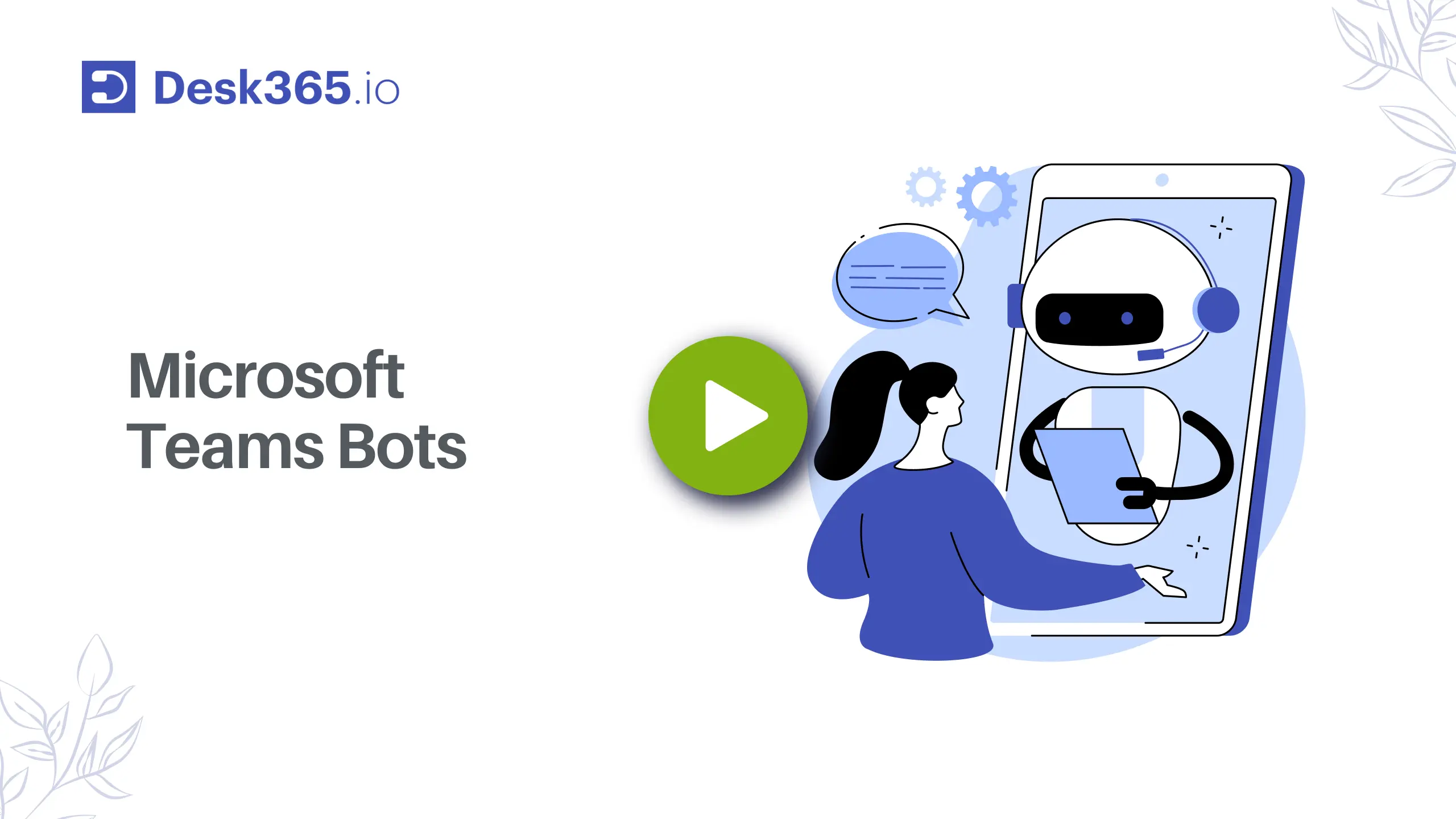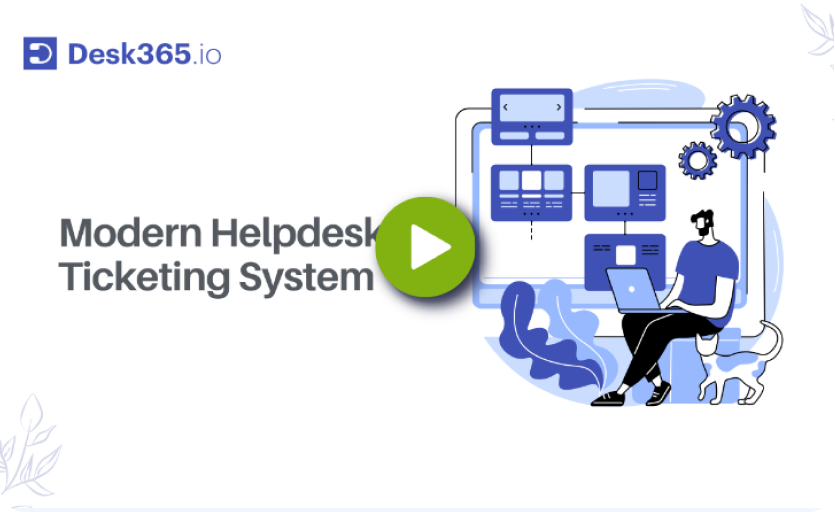Despite significant advancements in technology, studies continue to reveal that customers frequently express dissatisfaction with slow and inefficient customer support.
60% of customers define their customer service experience as satisfactory when they receive a quick resolution.
This feedback underscores the vital role of customer support agents in delivering good customer service and maintaining smooth business operations. Consequently, it is crucial for businesses to identify and implement strategies to improve agent productivity, as this directly influences customer satisfaction and service quality.
Common customer complaints often revolve around poor experiences caused by delayed responses and inadequate resolution of issues by underqualified contact center representatives. Although helpdesk software has evolved to include features such as live chat, workflow automation, canned responses, and self-service options, many businesses still struggle with unproductive support agents.
So, how can businesses enhance the productivity of their support teams? Let’s explore eleven effective strategies to empower support agents, improve agent efficiency, and help them perform at their best.
Addressing the root cause of agent inefficiency
When a support agent engages with a customer, whether through a call or a chat, they often spend a considerable amount of time searching for the correct answers to address the customer’s questions. This search for accurate information is a significant factor contributing to agent inefficiency. Many agents find themselves scrolling through multiple tabs or reaching out to colleagues for assistance in locating the right solution on a daily basis. This process not only consumes valuable time but also negatively impacts key help desk metrics, such as response time, overall efficiency, etc.
To mitigate this issue, it’s essential to streamline the process of finding information. By centralizing knowledge resources and making them easily accessible, support agents can quickly retrieve the information they need without unnecessary delays. This not only enhances their productivity but also helps agents ensure a more prompt and effective service for customers.
Empower your support agents to perform at their best
11 ways to improve agent productivity
1. Recruit the right support agents and provide comprehensive training
2. Set realistic goals
3. Establish a centralized ticketing system
4. Provide agents with the right tools and technology
5. Empower agent performance with automation tools
6. Encourage customer self-service options
7. Establish and measure KPIs
8. Encourage omnichannel communication
9. Keep your agents informed about new product updates
10. Deliver a seamless search experience
11. Encourage sharing of tickets with specific contacts
1. Recruit the right support agents and provide comprehensive training
To ensure your support agents excel in their roles, start by selecting individuals who are well-suited for the customer support position. Key attributes to look for include essential customer service management skills such as empathy, problem-solving abilities, and a customer-centric mindset.
Having a structured onboarding process is crucial for new hires. This process should offer a clear understanding of the company’s policies, tools, and customer base. Equipping new agents with the right knowledge from the start will boost their productivity. This can be achieved by:
- Conducting comprehensive training programs
- Organizing interactive workshops
- Offering online courses tailored to customer support
- Providing access to a detailed knowledge base, including FAQs, user guides, and instructional videos
A robust knowledge base is particularly important as it enables support agents to resolve customer issues more swiftly, thus enhancing their efficiency. Without it, agents may struggle to find the necessary information quickly, leading to delays in issue resolution.
Recommended Reading: How to set up knowledge base in Microsoft Teams
2. Set realistic goals
Establish clear and attainable goals by explicitly defining the roles and responsibilities of each support agent. Begin by detailing the tasks they need to perform and the support standards they must uphold. Additionally, ensure that agents understand customer expectations i.e., the level of service that customers expect from them.
When support agents have a clear understanding of their roles, setting achievable targets can motivate them, help them stay focused, work more efficiently, and provide a basis for evaluating their performance.
3. Establish a centralized ticketing system
Implementing a centralized helpdesk software can significantly enhance agent productivity. This ticket management system consolidates all customer inquiries from various platforms into a single, unified interface. By doing so, it eliminates the need for agents to switch between different platforms, saving time and reducing the risk of handling the same inquiries repeatedly.
Additionally, a centralized ticketing system maintains a comprehensive record of all customer interactions through support tickets. This allows agents to address issues more efficiently and provide personalized service.
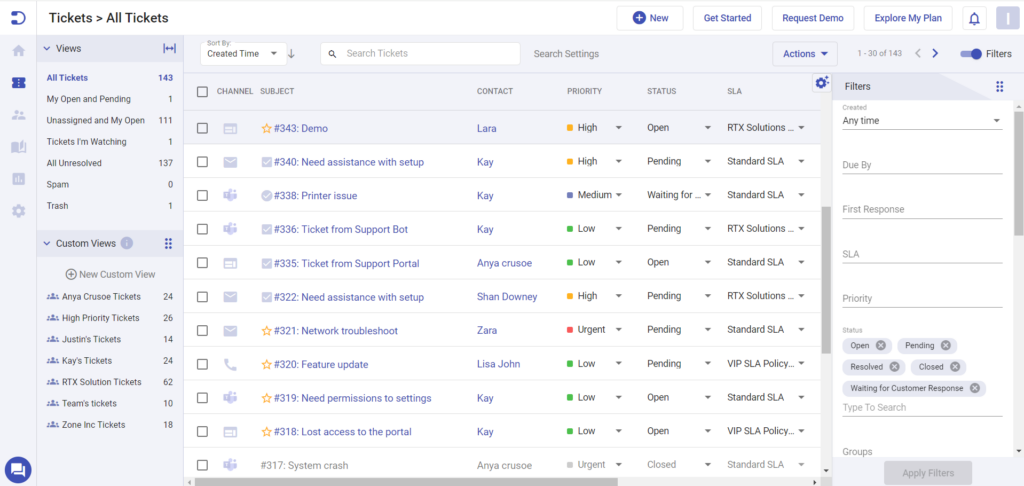
4. Provide agents with the right tools and technology
Equipping agents with the right tools and technology is essential for improving productivity and reducing the average handle time. AI can play a pivotal role in automating tasks, enabling quicker and more efficient responses to customer inquiries. This allows agents to spend less time answering common questions and more time addressing complex issues.
AI technologies can assist agents in various ways, such as:
- Crafting responses: AI can help generate appropriate and contextually relevant responses to customer queries.
- Correcting grammar: AI tools can automatically correct grammatical errors, ensuring clear and professional communication.
- Translating messages: AI can translate messages into multiple languages, allowing agents to effectively communicate with customers from different linguistic backgrounds.
By leveraging these AI capabilities, businesses can streamline their support processes and enhance the overall efficiency of their customer service teams.
5. Empower agent performance with automation tools
Automating repetitive tasks can streamline complex processes, allowing support agents to concentrate more on customer interactions. This not only enhances customer support efficiency but also boosts agent morale.
By implementing Service Level Agreements (SLAs) with automated notifications, agents can make informed decisions within predefined guidelines, saving time and enhancing customer satisfaction. This approach also enables agents to resolve issues independently, reducing the need for unnecessary escalations.
Automation rules allow agents to set up workflows based on ticket creation, ticket updates, and time-based triggers. Additionally, you can schedule work by defining business hours and days off for your support team, further optimizing their productivity and work-life balance.
Recommended Reading: Helpdesk Automation: The Ultimate Guide & Top 7 Tools
6. Encourage customer self-service options
Promoting self-service options empowers customers to submit tickets, track their status, and access the knowledge base to resolve issues independently. This allows support agents to focus more on complex tickets.
Encouraging the use of self-service resources can significantly boost agent productivity. Help center articles, FAQs, and instructional videos provide customers with quick solutions, enabling them to resolve issues more efficiently.
By providing customers with easy access to information, self-service options reduce the time spent on research and improve overall agent productivity.
Recommended Reading: 8 Best Customer Self-Service Portals
7. Establish and measure KPIs
Set clear agent performance metrics that align with the goals of your support agents to effectively monitor and measure their productivity. Help desk software can provide the necessary data and analytical tools to track agent performance.
Key help desk metrics to consider include:
Regularly measuring these metrics and discussing the findings with your support agents is essential. This practice ensures accountability and helps identify specific areas where agents can improve.
8. Encourage omnichannel communication
Implementing a variety of communication channels enhances the interaction between customers and service agents. This approach allows customers to conveniently raise tickets from multiple platforms, such as email, support portals, Microsoft Teams, web forms, and web widgets. It also ensures that support agents can respond to queries in a manner that is easy, secure, and reliable.
9. Keep your agents informed about new product updates
Foster effective communication among support agents within the organization. Encourage collaboration, gather feedback, and address issues collectively. Ensure agents are notified about product updates through the help desk software, keeping them informed about business changes. This preparation enables agents to handle calls more efficiently and enhances their overall productivity.
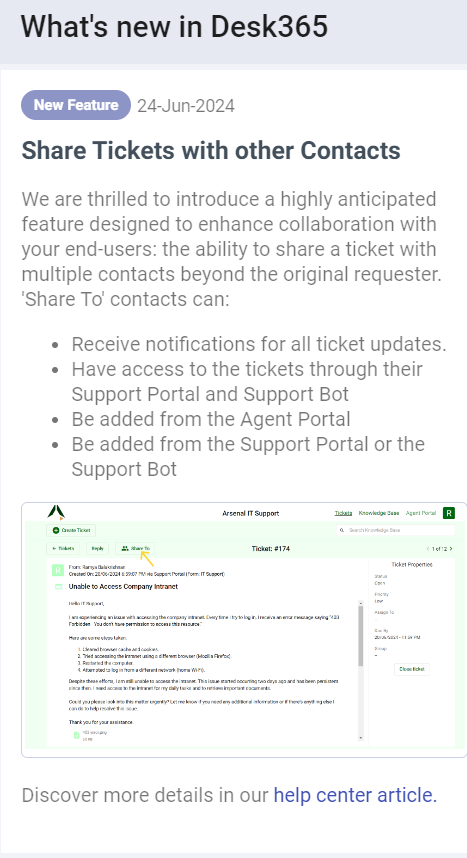
10. Deliver a seamless search experience
We are all accustomed to search engines that quickly return relevant information. Similarly, support agents benefit from a robust search experience within their help desk ticketing system, enabling them to efficiently search through thousands of logged tickets. Integrating a powerful search feature within the ticketing system saves agents time and boosts productivity.
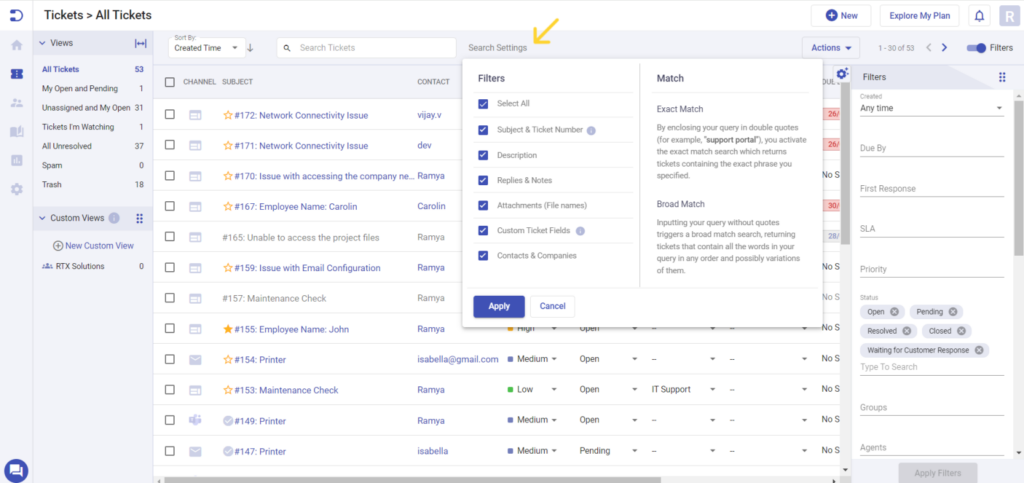
11. Encourage sharing of tickets with specific contacts
Promote the practice of agents and users sharing tickets with designated contacts from either the agent interface or the support portal. This strategy ensures that the right individuals are promptly notified about specific issues, streamlining the resolution process.
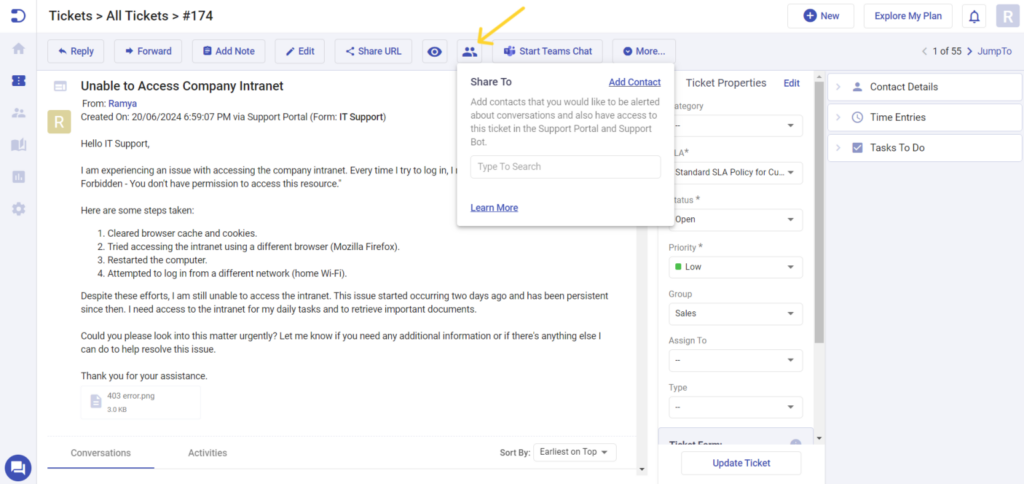
By enabling ticket sharing, agents can quickly escalate tickets to team members or departments with the appropriate expertise. For instance, if a technical issue requires input from the IT department, the agent can directly share the ticket with an IT specialist, ensuring timely intervention and minimizing delays.
For users, having the option to share tickets with specific contacts can significantly enhance communication and efficiency. If a user knows which department or individual is best suited to handle their issue, they can direct their ticket accordingly. This reduces the back-and-forth typically associated with ticket handling and accelerates problem resolution.
Recommended Reading: IT Helpdesk Software
Improve agent productivity and efficiency with Desk365!
Desk365 enhances agent productivity through a comprehensive suite of features designed to streamline customer support operations and elevate service quality. By automating repetitive tasks and leveraging AI-powered assistance, Desk365 empowers agents to focus more on meaningful customer interactions. The platform serves as a centralized hub for all customer communications, ensuring that agents have easy access to historical data and can provide consistent, informed responses.
With mobile apps, workflow automation capabilities, and internal communication channels, Desk365 fosters collaboration among team members and minimizes unnecessary delays in resolving customer issues. Agents benefit from real-time updates and SLAs enabling them to address customer queries promptly and effectively. This proactive approach not only improves response times but also enhances overall customer satisfaction by ensuring that issues are resolved efficiently.
To experience how Desk365 can boost agent productivity in your organization, sign up for a free trial and explore firsthand how our platform can optimize your customer support operations.
Frequently asked questions
Agent productivity refers to the efficiency and effectiveness with which customer support agents handle inquiries, resolve issues, and contribute to overall customer satisfaction.
Agent productivity ensures quicker response times, better issue resolution, and improved customer experiences, ultimately benefiting business performance.
Businesses can enhance productivity by providing the right tools, automating repetitive tasks, centralizing knowledge resources, and offering comprehensive training programs.
Desk365 provides a centralized platform for managing customer queries, automates repetitive tasks, offers robust search capabilities, and more, ensuring faster and more effective service delivery.








